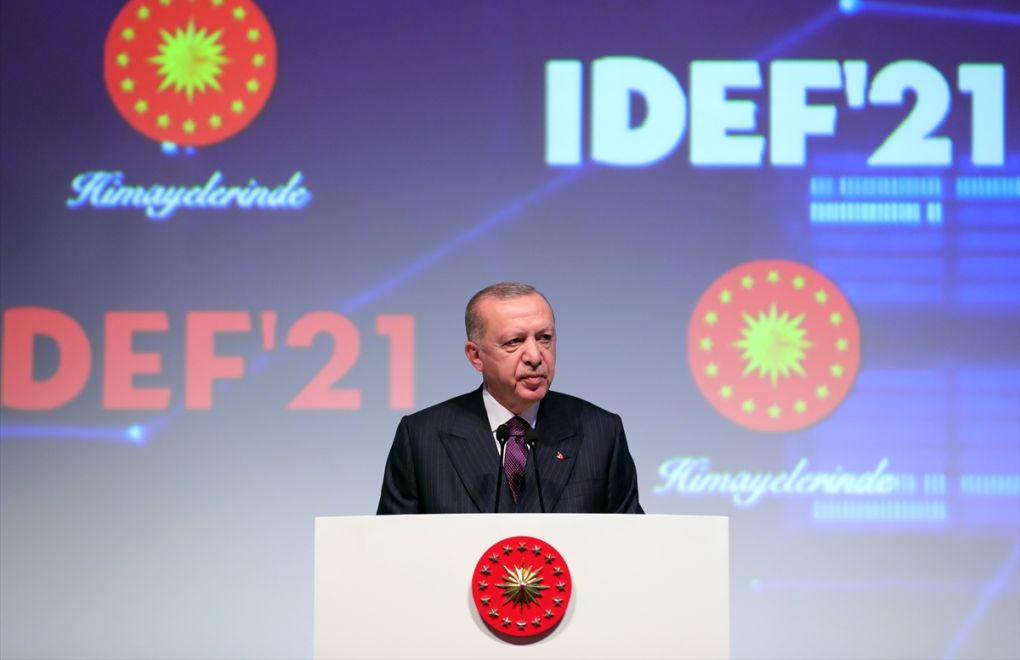Photo: AA
Click to read the article in Turkish
Turkey is among three or four countries globally that design, produce, and sell armed unpersonned aerial vehicles or drones, President and Justice and Development Party (AKP) Chair Recep Tayyip Erdoğan has said.
Speaking at the International Defense Industry Fair (IDEF) in İstanbul, Erdoğan said Turkey is not only self-sufficient in terms of its defense industry but also shares its know-how with its friends and allies.
By focusing on the defense industry, Turkey aims to overcome the difficulties posed by global suppliers, as well as "covert and open embargoes," he added.
CLICK - Canada cancels arms permits to Turkey over drone use in Nagorno-Karabakh war
"As a country that was forsaken at the most critical moments of its fight against terrorism and unable to acquire any product it needed while its borders were under threat, we were compelled to take steps to meet our own needs quickly," the president remarked.
He said the country used its projects and products to secure its borders and to create a security zone in its region with cross-border operations.
Citing the idiom "If you want peace, prepare for war," Erdoğan said this is the philosophy of the Turkish defense industry.
Stressing that economic tools, claimed to be based entirely on profit and loss calculations, have been turned into weapons that serve political and ideological agendas, he said the defense industry is one of the most important tools of this distorted global order.
Contribution to NATO
Turkey never sees defense industry contacts as ordinary trade relations, Erdoğan underlined.
"We believe that the establishment of a climate of peace, stability and trust in our region and in the world depends on establishing a fair balance in the defense industry," the president highlighted, adding:
"As a leading member of NATO, the world's largest defense pact, we believe that our contribution to regional and world peace will increase as we develop our national defense industry."
The country's defense industry exports also reached 3 billion dollars from just 250 million dollars, he said.
"One of the factors behind this success is that the budget allocated by the research and development (R&D) sector has increased from $49 million to more than 1.5 billion dollars," he added. (AS/VK)




